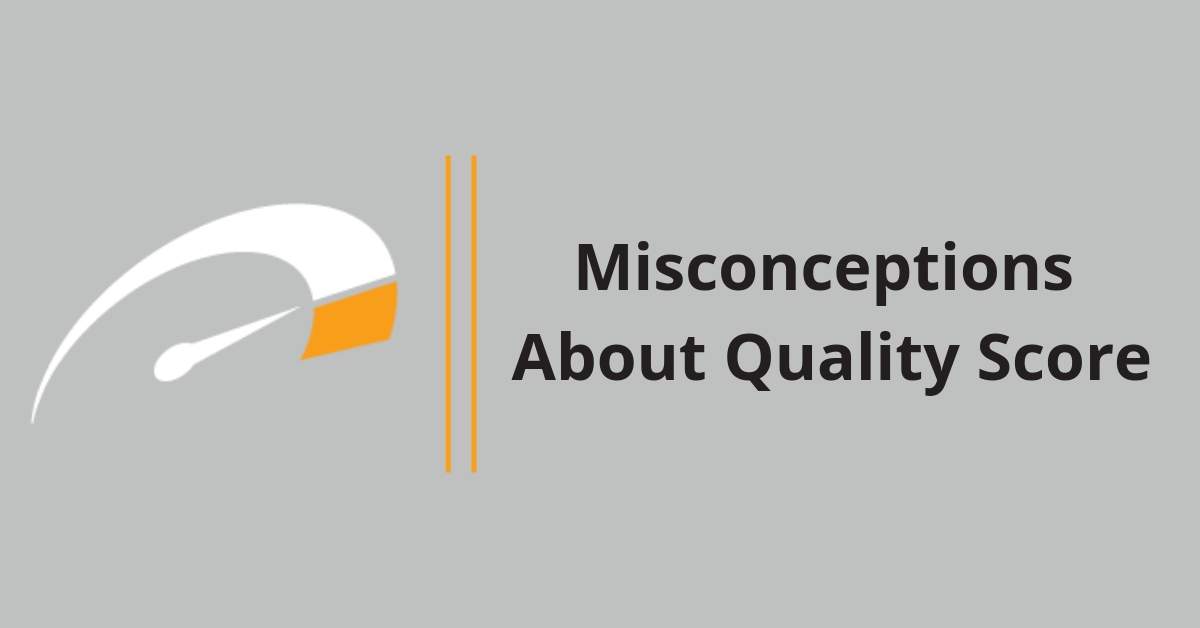A few weeks ago, we ran through a quick crash course on how Google’s Quality Score works. If you haven’t read that yet, stop reading this and check it out, you can find the article here.
If you have read it or are already aware of how quality score works, then you’re in the right place. Today, we will be going over a few misconceptions that many people, even SEO pros, still have about Quality Score.
Let’s dive in.
First, let’s go over what does and doesn’t matter when it comes to measuring Quality Score.
What Does Matter?
Quality score will change based on what device is being used. The best way to capitalize on this is to ensure that your site experience is optimized for mobile and that you are targeting those users with mobile-friendly ads. Google doesn’t require that you have a separate mobile site, but you should make sure that your site is easy to navigate and intuitive for a user on mobile.
The User’s Intention
The matching a search to the user’s intention is vital to a good Quality Score. Focus on delivering relevant ads that answer the searcher’s intent.
Performance of Related Keywords
If you are already running ad campaigns with relevant keywords and landing pages, Google is likely to reward that with a higher quality score.
What Doesn’t Matter:
How You Structure Your Account
Google will not punish you for setting up your account how you like. If it doesn’t affect user experience, your ad’s quality score will not change.
Running Your Ads in Another Network
Whether you target the Google Display Network or Google search, your quality score will not be affected. Again, relevance is the most important factor that Google considers. Aim to answer the searchers intent with every ad.
Ad Placement on a Page
It’s great to have a high position on a page but, ultimately it will not have an effect on expected CTR. Expected CTR is normalized for your actual position on a page.
Quality Score is not a real-time KPI. It is more of a diagnostic tool.
An ad’s Quality Score will be calculated for each auction that an ad enters, but the quality score that is shown in your account is not an exact representation of the real-time calculations of the ad’s quality. Even for Google, there are too many factors to consider for every auction to allow for a fully accurate representation of your ad’s quality. Quality Score is meant to be used as a more general metric that can be used to evaluate your overall performance in auctions.
A higher Quality Score doesn’t necessarily mean more conversions.
While there is a correlation between Quality Score and your cost per conversion (Wordstream), a higher Quality Score doesn’t inherently mean your ad will receive more conversions. Quality Score doesn’t consider the conversion rate since it’s based on consumer experience and relevancy. That is why you might have your top converting keyword with a lower Quality Score.
Want to learn more about how you can improve the overall quality of your ads on paid search? A Paid search audit of your existing campaigns can reveal significant performance improvement opportunities!
Contact your Dealer Teamwork account manager or sales@dealerteamwork.com to get set up on Paid Search Marketing with the MPOP®.

